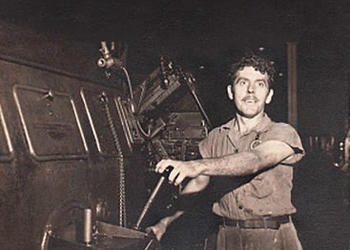Finding Work In A Tough Economy
Real-Life Examples

Steve had lived the typical American life. He grew up in a middle-class family, worked his way through college, earned a bachelor's degree in communications, later married and started a family. But this idyllic life began to crumble when Steve found himself out of work with three little ones to provide for at home. He just couldn't find a job opening for someone with the degree he had worked so hard to complete.
Sound familiar? With the unemployment rate near 10 percent in the United States and even worse elsewhere, Steve could easily be one of today's unemployment statistics. But he's not. He faced his job crisis in the early 1990s, not 2011.
The example of Steve and others reveal tried and true principles for finding a job even in difficult times.
Steve's secret: creative flexibility
Steve did something very important. He changed to fit the job market rather than expecting it to change to fit him.
Like Steve, many of us will have to adapt to the changing economy. Specialized training or a degree does not guarantee a job. Technology makes some jobs obsolete, jobs move overseas, or unexpected shifts in the economy can disrupt local employment. Those who learn new skills or adapt the ones they have will find ways to succeed.
Steve's saga: working hard
Steve took a job with a local janitorial service cleaning buildings after hours. This work experience led him to apply for a job in the housekeeping department of a local hospital. He worked there for many months, cleaning patient rooms and emptying trash cans until an opening came up for a supervisor's position in the sterile supply department. Steve was promoted, and his new duties involved the sterilizing of surgical equipment and preparing the surgical trays for the operating rooms.
A few months later, the director of sterile supply resigned, and while the hospital looked for a new director, Steve asked that he be considered for the job (even though he did not have the exact qualifications). The hospital agreed, and Steve was named the interim director of sterile supply. His new duties included supervising 70 people and balancing the department's large budget. As a result of his persistence and hard work ethic, the hospital appointed Steve as the new director of sterile supply, a job he held for several years until a new opportunity came along with another company.
Steve now travels around the country using his communications degree skills in training people to use new software programs. It wasn't that Steve was a genius or more qualified that earned him a better job. Rather it was his willingness to take a job that was not his "ideal" and give it 100 percent for the good of the company.
Positive attitude and work ethic
This attitude or approach in life really paid off for Steve, and it can for you too!
While it's still very important to get an education and training, the attitude in wielding the skills you learn is equally important. One of the great kings of ancient Israel, Solomon, wrote, "Whatever your hand finds to do, do it with all your might" (Ecclesiastes 9:10).
Whether you're working in your dream job or serving tables while you wait for that job, you must give your best effort—because you never know what bigger and better opportunities may be just ahead.
In today's changing market, avoid limiting your job opportunities by having too narrow a focus. Think about how your interest might link to career opportunities you haven't considered. For example, many who trained as artists a generation ago now use their talent for graphics on video games. Or there's the stay-at-home mom who invented the decorative clips for croc shoes to decorate her child's shoes and then sold the "idea" for a million dollars.
Chet's secret: quick thinking
Be prepared to take unexpected opportunities when they come up.
Chet was my husband's grandfather, who lived through the Great Depression of the 1930s. The southeastern Ohio coal mine Chet worked in had shut down, and he moved to the state capital in Columbus to seek work. Depression-era unemployment rates make today's look mild.
While pounding the pavement one day to find a job, Chet was passing a factory building when he noticed smoke coming from the roof. He ran into the building to alert someone about the fire, which was swiftly extinguished. As a result, the owners of the factory were so thankful for Chet's quick thinking that they offered him a job on the spot, and he worked there for three decades until his retirement.
Success in your future
While you may not have control over the fluctuating job market, God has given you the ability to control how you react to the market. Like Steve, you may have to take a job that's less than "ideal" until other opportunities arise. In any case, determine in your mind to be flexible and do your job with all your might. It will pay off in the long run. If it worked for two ordinary men like Steve and Chet, it can work for you too!
